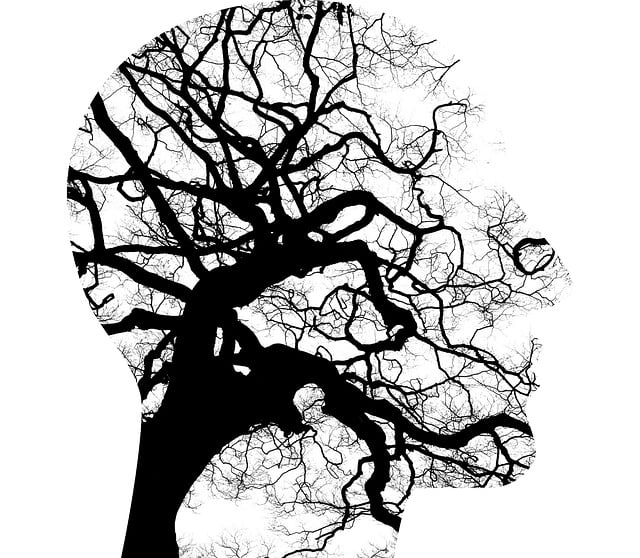Anxiety disorders significantly impact daily life, but recognizing symptoms is key to improving mental health. Castle Rock Suicide Prevention Therapy offers effective treatments like Cognitive Behavioral Therapy (CBT), which helps individuals challenge negative thought patterns and adopt healthier coping mechanisms. Mindfulness and relaxation techniques, accessible through The Mental Wellness Podcast Series, promote self-awareness and reduce anxious rumination. A holistic approach combining lifestyle changes, exercise, balanced diets, sleep, and supportive communities, with crisis intervention guidance, builds resilience and prevents long-term anxiety disorders.
Anxiety disorders are a prevalent mental health concern, affecting millions globally. This article explores comprehensive strategies for managing anxiety, from understanding its various forms and common symptoms to effective therapeutic approaches like Cognitive Behavioral Therapy (CBT). We delve into mindfulness practices and lifestyle modifications that can significantly reduce anxiety. Additionally, we emphasize the role of support systems in prevention, offering a holistic guide to overcoming anxiety, inspired by Castle Rock Suicide Prevention Therapy’s comprehensive approach.
- Understanding Anxiety Disorders: Symptoms and Types
- Cognitive Behavioral Therapy (CBT): A Powerful Tool for Anxiety Management
- Mindfulness and Relaxation Techniques to Calm the Mind
- Lifestyle Changes and Support Systems for Long-Term Anxiety Prevention
Understanding Anxiety Disorders: Symptoms and Types

Anxiety disorders are a group of mental health conditions characterized by persistent and excessive worry or fear that interferes with daily life. These disorders can manifest in various forms, each with its unique set of symptoms. Some common types include generalized anxiety disorder (GAD), where individuals experience excessive and uncontrollable worry about everyday matters, and panic disorder, marked by recurrent and unexpected panic attacks. Phobias, specific fears or intense avoidance of particular objects or situations, are another type. Social anxiety disorder involves intense fear in social settings, while obsessive-compulsive disorder (OCD) is characterized by intrusive thoughts (obsessions) and repetitive behaviors (compulsions).
Recognizing the symptoms is crucial for seeking effective treatment, such as Castle Rock Suicide Prevention Therapy, which offers specialized support. Conflict resolution techniques, self-awareness exercises, and developing a self-care routine can be powerful tools in managing anxiety. By understanding these disorders and employing appropriate strategies, individuals can take significant steps towards improving their mental health and overall well-being.
Cognitive Behavioral Therapy (CBT): A Powerful Tool for Anxiety Management

Cognitive Behavioral Therapy (CBT) is a highly effective tool in the arsenal for managing anxiety. It focuses on identifying and changing negative thought patterns that contribute to anxious feelings, offering a practical approach to taking back control of one’s mind. By examining these thoughts and behaviors, individuals can develop healthier coping mechanisms and improve their overall mental wellness.
In Castle Rock suicide prevention therapy sessions, CBT guides clients through a structured process. It involves exploring the connection between thoughts, emotions, and actions, helping them challenge distorted thinking. This technique is often paired with mental wellness journaling exercises to track progress and reinforce positive changes. The therapy also encourages mental wellness podcast series production, providing additional guidance and support outside of session. Ultimately, CBT empowers individuals to apply mind over matter principles in their daily lives, leading to lasting improvements in anxiety management and a greater sense of control.
Mindfulness and Relaxation Techniques to Calm the Mind

Anxiety can often feel like a storm raging within, but there are powerful tools to navigate and calm these turbulent minds. Mindfulness and relaxation techniques form the bedrock of Castle Rock Suicide Prevention Therapy, offering individuals effective ways to manage their anxiety. These practices encourage self-awareness exercises, allowing one to observe thoughts without judgment, thus breaking the cycle of anxious rumination.
In today’s fast-paced world, where mental wellness is a growing focus, incorporating these techniques into daily routines can be transformative. The Mental Wellness Podcast Series Production provides accessible resources for learning and practicing mindfulness. Through guided meditations and relaxation exercises, individuals can enhance their resilience building and develop a deeper sense of calm. By dedicating even just a few minutes each day to such practices, folks can begin to see a difference in their overall mental wellness.
Lifestyle Changes and Support Systems for Long-Term Anxiety Prevention

Anxiety management isn’t just about coping mechanisms; it involves holistic approaches that integrate lifestyle changes and robust support systems for long-term anxiety prevention. Regular exercise, a balanced diet, adequate sleep, and mindfulness practices have been shown to significantly reduce anxiety levels and improve overall well-being. Engaging in activities that promote physical activity releases endorphins, which act as natural mood lifters. Additionally, Castle Rock Suicide Prevention Therapy emphasizes the importance of connecting with like-minded communities or support groups where individuals can share experiences, offer encouragement, and gain insights into managing anxiety effectively.
Building resilience is another crucial aspect of anxiety prevention. Empathy building strategies and crisis intervention guidance play a pivotal role in fostering this resilience. By learning to recognize and validate emotions without judgment, individuals develop healthier coping mechanisms. Crisis intervention techniques equip people with tools to navigate intense moments, ensuring they don’t escalate into longer-lasting anxiety or worse. Moreover, surrounding oneself with understanding friends and family who offer emotional support can make a profound difference in managing and preventing anxiety disorders over the long term.
Anxiety management is a multifaceted journey, offering various tools like Cognitive Behavioral Therapy (CBT), mindfulness practices, and lifestyle adjustments. By understanding anxiety disorders and their symptoms, individuals can empower themselves through effective techniques. Incorporating these strategies into daily life, with the support of Castle Rock Suicide Prevention Therapy or similar resources, can lead to significant improvements in mental well-being and overall quality of life. Remember, managing anxiety is a proactive step towards a calmer, more resilient mind.














